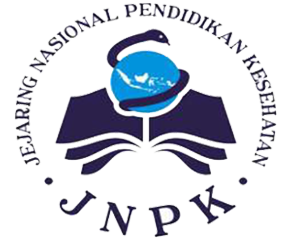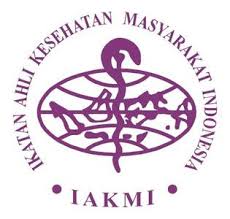Pemanfaatan Posyandu Lansia di Wilayah Kerja Puskesmas
Abstract
ABSTRAK
Cakupan pelayanan kesehatan pada lansia di Puskesmas Srondol sebesar 13,10 %. Sebagai upaya dalam meningkatkan cakupan pelayan kesehatan pada lansia maka diselenggarakan posyandu lansia, lansia yang memanfaatkan posyandu lansia hanya sebesar 813 jiwa atau sebesar 23,04 % dari 3528 jiwa lansia. Hal tersebut menunjukkan bahwa pemanfaatan posyandu lansia di wilayah kerja Puskesmas Srondol masih kurang dari target yang ditetapkan yaitu sebesar 90%. Tujuan penelitian ini untuk mengetahui faktor-faktor yang berhubungan dengan pemanfaatan posyandu lansia di wilayah kerja Puskesmas Srondol. Jenis penelitian yang digunakan adalah desain penelitian kuantitatif, studi deskriptif analitik, dengan pendekatan cross sectional. Sampel yang ditetapkan sebesar 144 sampel dengan teknik proportionate random sampling. Instrumen yang digunakan adalah kuesioner terstruktur. Data analsis dengan menggunakan uji Chi-square. Hasil dari penelitian menunjukkan bahwa faktor yang berhubungan dengan pemanfaatan posyandu lansia adalah pendidikan, sikap, peran kader, dukungan keuarga, jarak. Sedangkan faktor yang tidak berhubungan dengan pemanfaatan posyandu lansia adalah jenis kelamin, pekerjan, pendapatan, persepsi sakit,pengetahuan.
ABSTRACT
The coverage of health services in the elderly in Puskesmas Srondol is 13.10%. As an effort to improve the coverage of health care service in the elderly, the Posyandu for elderly is held, elderly people who utilize an posyandu of only 813 people or 23.04% of the 3528 elderly. This indicates that the use of Posyandu in the work area of Puskesmas Srondol is still less than the target set of 90%. The purpose of this research is to know the factors related to the use of Posyandu in the work area of Puskesmas Srondol. The type of research used is a quantitative research design, a descriptive analytical study, with a cross sectional approach. The samples were set at 144 samples with proportionate random sampling technique. The instruments used are structured questionnaires. Analytic Data using Chi-square test. Results of the study showed that the factors related to the use of posyandu are education, attitudes, the role of cadres, support of the land, distance. While the factors that are not related to the use of Posyandu is gender, ethics, income, perception of pain, knowledge.




